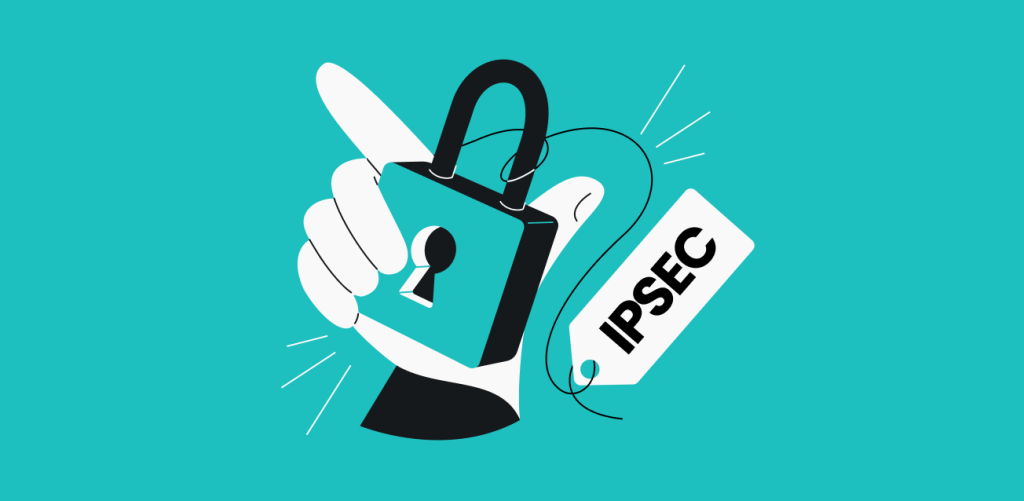Featured
Table of Contents
Ipsec Explained: What It Is And How It Works
These settlements take two kinds, primary and aggressive. The host system that starts the process recommends file encryption and authentication algorithms and settlements continue till both systems choose the accepted protocols. The host system that starts the procedure proposes its favored encryption and authentication approaches but does not work out or alter its choices.
Once the information has been transferred or the session times out, the IPsec connection is closed. The private keys utilized for the transfer are deleted, and the procedure pertains to an end. As shown above, IPsec is a collection of lots of various functions and actions, comparable to the OSI design and other networking frameworks.
IPsec utilizes two primary procedures to offer security services, the Authentication Header (AH) procedure and the Encapsulating Security Payload (ESP) procedure, along with several others. Not all of these procedures and algorithms need to be utilized the particular selection is determined throughout the Negotiations stage. The Authentication Header procedure confirms data origin and integrity and provides replay defense.
Ipsec Protocol Framework - Secure Vpn
The Kerberos procedure provides a centralized authentication service, permitting devices that use it to confirm each other. Various IPsec executions might utilize various authentication techniques, however the result is the very same: the safe transference of information.
The transport and tunnel IPsec modes have a number of key distinctions. Encryption is only used to the payload of the IP package, with the initial IP header left in plain text. Transportation mode is generally utilized to offer end-to-end communication in between 2 devices. Transport mode is mostly used in situations where the two host systems interacting are trusted and have their own security procedures in location.
File encryption is applied to both the payload and the IP header, and a new IP header is contributed to the encrypted packet. Tunnel mode provides a secure connection in between points, with the original IP package wrapped inside a new IP packet for extra defense. Tunnel mode can be used in cases where endpoints are not trusted or are doing not have security mechanisms.
Difference Between Ipsec And Ssl
This indicates that users on both networks can communicate as if they remained in the very same space. Client-to-site VPNs permit individual gadgets to link to a network remotely. With this choice, a remote worker can run on the same network as the rest of their group, even if they aren't in the same location.
It should be noted that this approach is rarely used because it is hard to handle and scale. Whether you're using a site-to-site VPN or a remote access VPN (client-to-site or client-to-client, for example) most IPsec topologies feature both benefits and drawbacks. Let's take a closer take a look at the benefits and downsides of an IPsec VPN.
An IPSec VPN is flexible and can be configured for different use cases, like site-to-site, client-to-site, and client-to-client. This makes it a good option for companies of all shapes and sizes.
Advantages And Disadvantages Of Ipsec - A Quick View


IPsec and SSL VPNs have one main distinction: the endpoint of each procedure. An IPsec VPN lets a user connect remotely to a network and all its applications.
For mac, OS (by means of the App Store) and i, OS versions, Nord, VPN utilizes IKEv2/IPsec. This is a combination of the IPsec and Web Key Exchange version 2 (IKEv2) procedures. IKEv2/IPsec enables for a protected VPN connection, without jeopardizing on internet speeds. IKEv2/IPsec is just one alternative offered to Nord, VPN users, however.
Stay safe with the world's leading VPN.
What Is Ipsec And How Does It Work?
Before we take a dive into the tech stuff, it is very important to observe that IPsec has quite a history. It is interlinked with the origins of the Web and is the outcome of efforts to develop IP-layer encryption methods in the early 90s. As an open procedure backed by constant development, it has proved its qualities throughout the years and despite the fact that opposition protocols such as Wireguard have actually occurred, IPsec keeps its position as the most widely used VPN procedure together with Open, VPN.
As soon as the interaction is established, IPSEC SA channels for safe and secure information transfer are developed in stage 2. Qualities of this one-way IPsec VPN tunnel, such as which cipher, method or key will be used, were pre-agreed by both hosts (in case of IPsec VPN, this is a connection in between a gateway and computer).
IPsec VPNs are extensively utilized for numerous reasons such as: High speed, Very strong ciphers, High speed of developing the connection, Broad adoption by running systems, routers and other network gadgets, Obviously,. There are alternative choices out there such as Open, VPN, Wireguard and others (see the list of essential VPN protocols on our blog).
Ipsec (Internet Protocol Security) Vpn
When establishing an IKEv2 connection, IPsec uses UDP/500 and UDP/4500 ports by default. By basic, the connection is established on UDP/500, but if it appears throughout the IKE facility that the source/destination is behind the NAT, the port is changed to UDP/4500 (for information about a strategy called port forwarding, inspect the short article VPN Port Forwarding: Good or Bad?).
There are several distinctions in regards to technology, usage, benefits, and disadvantages. to secure HTTPS traffic. The purpose of HTTPS is to safeguard the material of communication between the sender and recipient. This ensures that anyone who wants to intercept communication will not have the ability to find usernames, passwords, banking info, or other delicate information.
IPsec VPN works on a various network layer than SSL VPN. IPsec VPN operates on the network layer (L3) while SSL VPN operates on the application layer.
How Do Ipsec And Vpn Work?

When security is the primary concern, modern cloud IPsec VPN should be picked over SSL given that it secures all traffic from the host to the application/network/cloud. SSL VPN protects traffic from the web browser to the web server only. IPsec VPN protects any traffic between two points determined by IP addresses.
The issue of picking between IPsec VPN vs SSL VPN is carefully associated to the subject "Do You Need a VPN When The Majority Of Online Traffic Is Encrypted?" which we have actually covered in our recent blog site. Some might think that VPNs are hardly required with the increase of in-built file encryption directly in email, internet browsers, applications and cloud storage.
Latest Posts
Why You Need A Vpn, And How To Choose The Right One
Beginner's Guide To Vpn - Everything You Need [5000+ ...
Best Vpns For Small Businesses (2023)